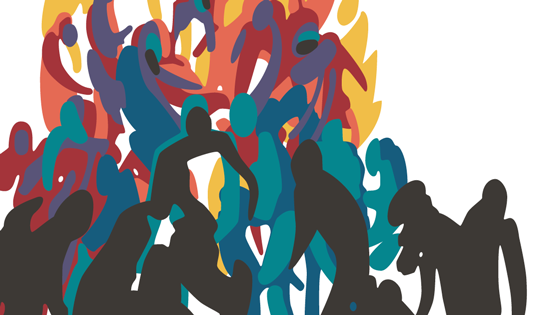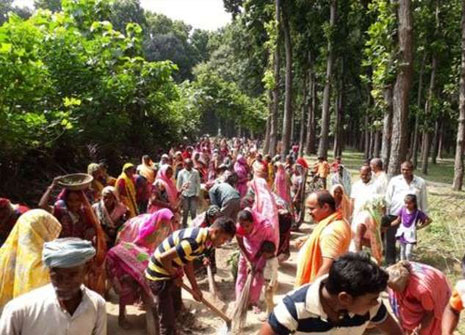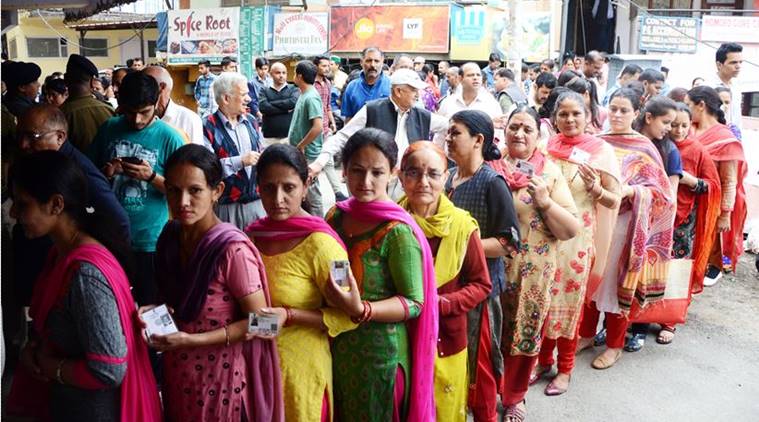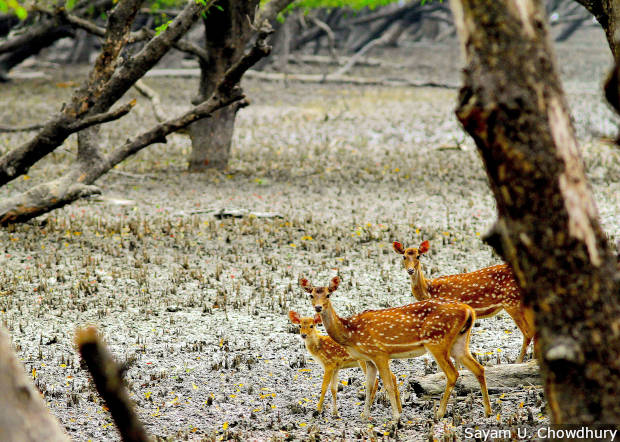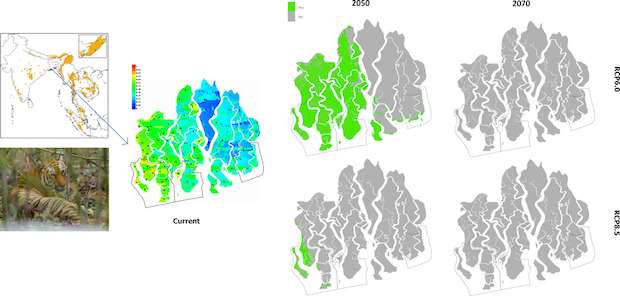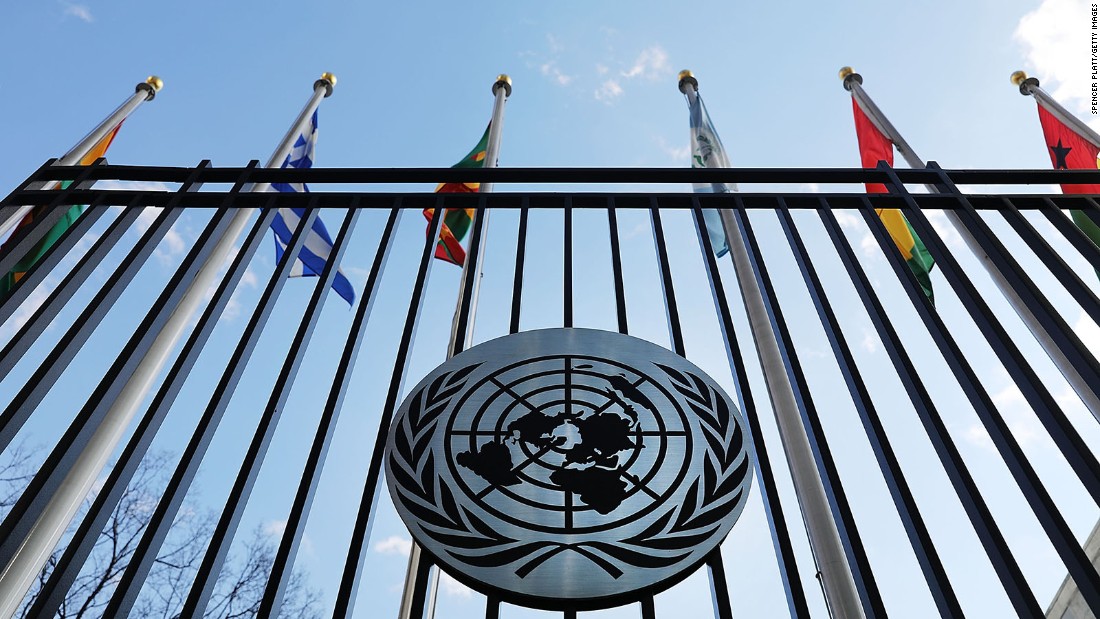All Women Are White, All Blacks Are Men: But some of us are Brave was a famous feminist anthology in Black Women’s Studies published in the 80s. Back home, Sharmila Rege in “A Dalit Feminist Standpoint”, published in Seminar magazine talks about “the masculinisation of Dalithood and Savarnisation of womanhood.” She brings forth the savarnised feminist movement, while also pointing out the male centricity of the Dalit Movement. In her view, these two important discourses have excluded the Dalit woman and have led to her “invisibilisation”.
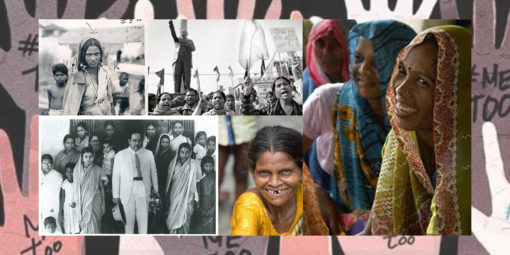
The Dalit-Bahujan woman was the first woman to have ever entered the workplace either as a land labourer, a toilet cleaner, an artist, a dancer, a hand weaver or a house servant. Why is she missing from the #metoo movement despite her having endured sexual harassment at the workplace for a time longer and an extent graver than Savarna woman.
Progressive Savarna women and Ambedkarite Dalit men have both been silent on the #metoo (sexual harassment at workplace) of Dalit-Bahujan woman for long. At best, she has found marginal inclusion or rather some form of token representation in the discourses of the feminists as well as the Ambedkarites. She finds mention when a few amongst her manage to reach the top, the likes of Mayawati, Tina Dabi and Devyani Khobragade, or by way of tokenism in the occasional atrocities (mostly rapes and murders) on Dalit women.
Lone Warrior
What is evident is how the Dalit-Bahujan woman is missing from the #metoo movement despite her having endured sexual harassment at the workplace for a time longer and an extent graver than the Savarna woman.The Dalit-Bahujan woman was the first woman to have ever entered the workplace either as a land labourer, a toilet cleaner, an artist, a dancer, a hand weaver or a house servant. Caste, class and gender have worked organically to subject her to this triple burden/discrimination. In the spectrum of power, she is at the rearest end. Her stories at the workplace are known, but not spoken about. Her abuse is at the hands of the ‘upper caste him’ and the ‘caste him,’ not to forget the silence of the ‘upper caste her’. She finds herself a lone warrior in this struggle.
Savitribai Phule has been one such warrior. She was the first non-savarna woman to have entered the modern workplace and quite literally so. It makes me wonder why we are always fed a desexualised image of all our women icons. Wouldn’t she have survived this kind of sexual abuse? She was after all crushing caste and gender stereotypes at the dawn of the 19th century. The stone pelting, curses, allegations thrown her way, symbolise the casteist and sexist abuses every Dalit-Bahujan woman survives and endures. Unfortunately for my Dalit-Bahujan sister, the majority is not a passive bystander but an active perpetrator in her victimisation.
Most vulnerable
It is not surprising therefore, that the Dalit-Bahujan woman at the workplace today is the most vulnerable of the lot. She works in the unorganised sector, her labour is contractualised, her jobs are either dirty or looked down upon and her sweat disgusts one and all. She is harvesting, winnowing, threshing in the fields, toiling under the bare sun on construction sites, shining our used utensils and dirty linen, picking rags from foul smelling dumps and cleaning dry toilets with a broom and tinsheets.
The Dalit-Bahujan woman at the workplace is the most vulnerable of the lot. She works in the unorganised sector, her labour is contractualised, her jobs are either dirty or looked down upon and her sweat disgusts one and all.
As she works, she is being ogled at, caste and sex coloured remarks are thrown her way, she is touched, grabbed, her clothes ripped off, her inhuman rapes and murders all reek of a concoction of the caste system and patriarchy together. She is invariably rendered most insecure and vulnerable at her workplace.
Statutory lip service
Despite this, the 2013 Act on sexual harassment at the workplace that claims to include women of the unorganised, informal sector, provides mere lip service. The provision of the Local Complaints Committee at the district level is the only recourse for women in the unorganised sector whether it is rag pickers, safai karmacharis, land labourers or domestic workers. These local committees are either not set up at the district level or where they exist, they are made inoperable due to lack of resources.
Local Complaints Committee at the district level, the only recourse for women in the unorganised sector, are either not set up at the district level or where they exist, they are made inoperable due to lack of resources.
The inaccessibility of such district level local committees to these women at the taluka, ward, and village level is another major concern. In addition, the lack of resources – education and capital – makes justice inaccessible to her. The government has set no preconditions of setting up an Internal Complaints Committee (Vishakha Committee) before handing out contracts to contract companies or contractors in the unorganised sector. The Act remains silent on all such issues. Even the efforts of civil society (feminists and Ambedkarites alike) have been inadequate in educating and empowering working class Dalit women about existing provisions of the Sexual Harassment at Workplace Act.
High Time
Movements like “metoo” are crucial in creating a healthier and more egalitarian society. Their feminist objectives cannot be denied.
Civil society (feminists and Ambedkarites alike) has been inadequate in educating and empowering working class Dalit women about existing provisions of the Sexual Harassment at Workplace Act.
However, they will not be complete if they fail to penetrate across caste and class. It is high time that the working class Dalit, Adivasi , Bahujan woman shouts out a “metoo”. She may not find a voice on Twitter, Facebook or Whatsapp, but her struggle on the streets will compel people to hear her out. Her chorus should serve as a stimulus to all feminists as well as Ambedkarites. It is now time her issues don’t remain invisible or mere tokens in these movements.
Courtesy: Indian Cultural Forum

